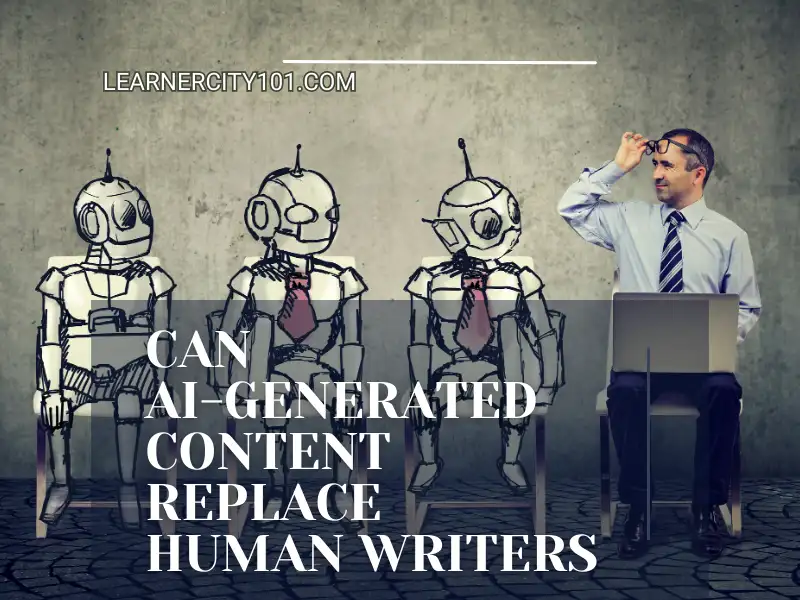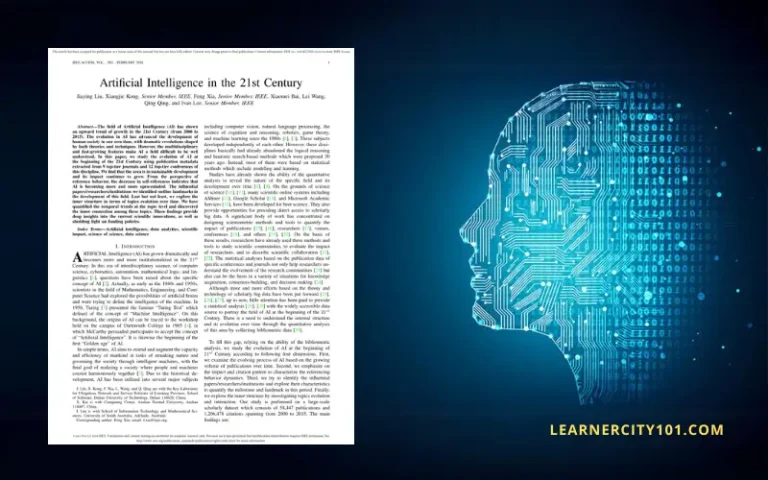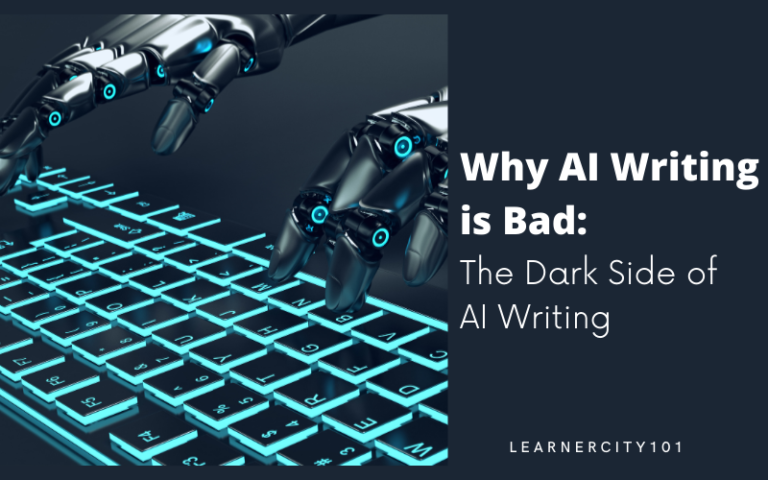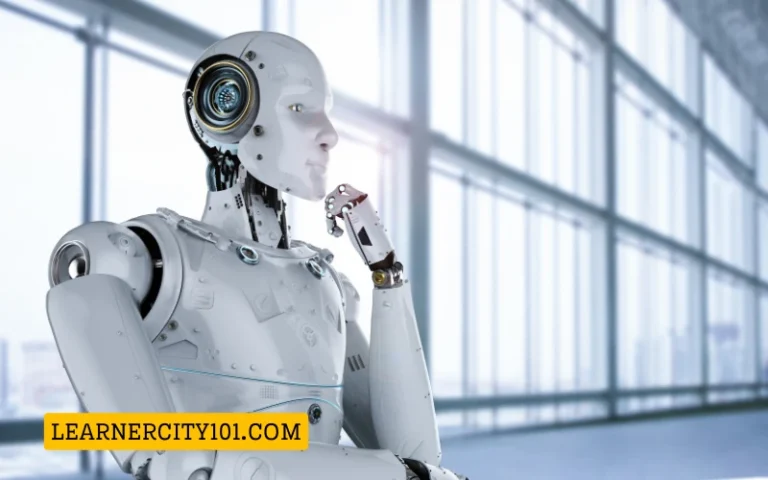Why AI-generated content Is Important For SEO?
AI-generated content plays a crucial role in Search Engine Optimization (SEO) strategies, offering various benefits that can significantly impact a website’s search engine rankings. The advancements in AI technology have revolutionized content creation, allowing businesses to optimize their content for better visibility and improved user experience.
This article explores the significance of AI-generated content for SEO and its impact on search engine rankings. By leveraging AI algorithms, businesses can enhance keyword optimization, personalize user experiences, and consistently produce high-quality content that satisfies search engine algorithms’ ever-changing demands.
Understanding the importance of AI-generated content for SEO is essential for businesses looking to stay ahead in the digital landscape and drive organic traffic to their websites.
Want to learn more about Artificial intelligence:
- Why Should You Invest In AI Writer Software For Your Blog?
- Can AI Writers Generate Product Descriptions?
What is AI-generated content?
AI-generated content refers to text, images, audio, or video material created by artificial intelligence systems rather than human creators. This technology is based on machine learning algorithms trained on vast datasets to understand and produce content in a way that mimics human creativity and intelligence.

AI content generators use models like GPT (Generative Pre-trained Transformer) for text or DALL-E for images to produce original material ranging from written articles to artistic visuals. The content produced by AI can be remarkably sophisticated, often making it difficult to distinguish from that crafted by people.
AI-generated content offers scalability and efficiency, generating large volumes of material in a fraction of the time it would take a human. Such content is useful for a variety of applications, including digital marketing, journalism, entertainment, and more. However, it also raises ethical and legal concerns regarding authenticity, copyright, and the potential displacement of human jobs. As AI continues to evolve, the implications for the creative industry and beyond will likely be profound.
How can AI-generated content improve Search Engine ranking?
One significant advantage of AI-generated content is its ability to optimize keywords and phrases. AI algorithms analyze search trends, allowing marketers to identify the most relevant and frequently searched terms within a specific niche. By using these insights, AI-generated content can include targeted keywords in website copy and blog posts, improving search engine visibility and increasing the chances of ranking higher in search results.
AI-generated content can enhance user experience through personalization. AI algorithms can analyze user browsing behavior, demographics, and preferences to create tailored content. This personalized approach enhances engagement, reduces bounce rates, and increases the time spent on a website – all of which positively impact search rankings.
Furthermore, AI-generated content can aid in structuring and formatting articles effectively. These algorithms can analyze millions of articles, identifying the most successful structures. By optimizing headings, subheadings, bullet points, and other elements, AI-generated content increases the likelihood of content ranking higher in search engine results pages.
Is AI-generated content considered original by search engines?
Search engines like Google aim to provide users with valuable, relevant, and authentic content. They employ complex algorithms to assess the quality of content, ensuring that it meets specific criteria for inclusion in search results. However, AI-generated content can present a challenge in this regard.
While AI can effortlessly create content that appears genuine, search engines have become more adept at detecting AI-generated content. They employ techniques such as comparing text patterns, examining syntactical structure, and analyzing semantic meaning to determine if a piece of content is machine-generated.
This doesn’t mean that AI-generated content is immediately deemed non-original by search engines. If an AI-generated piece offers valuable, unique, and useful information, it can still rank well in search results. However, if AI technology is solely being used to create redundant or low-quality content, search engines may penalize it by ranking it lower or excluding it altogether.
Can AI-generated content replace human writers?
With advancements in artificial intelligence (AI), the question arises: can AI-generated content replace human writers? While AI has certainly made strides in generating written content, it is still far from fully replacing human writers.

AI can churn out articles, news reports, and even fictional stories, mimicking the style and tone of human writing. However, AI-generated content lacks the depth of emotion, creativity, and unique perspectives that human writers bring to the table. Human writers possess a keen ability to connect with readers on an emotional level and explore complex ideas in a way that AI struggles to replicate.
AI also struggles with originality. It heavily relies on existing content for reference, which limits its ability to generate truly unique and innovative creations. Furthermore, AI cannot match the natural intuition and contextual understanding that humans possess. It may produce grammatically correct sentences, but comprehension and crafting of sophisticated ideas are beyond its capabilities.
How does AI-generated content support multilingual SEO?
AI-generated content allows businesses to efficiently produce content in different languages, eliminating the need for manual translation. This not only saves time and resources but also ensures accuracy in targeting different language markets.
Furthermore, AI can adapt content to suit the nuances of each language, making it more culturally relevant and appealing to local audiences. By tailoring content to specific regions, businesses can improve their search engine rankings in different language markets.
It assist in optimizing keywords and other SEO elements for multilingual content. AI can perform thorough keyword research and suggest relevant keywords for different languages, ensuring better visibility and higher organic traffic in diverse markets.
The Role of AI-Generated Content in SEO
One significant advantage of AI-generated content is its ability to analyze vast amounts of data quickly. AI algorithms can identify patterns and determine the best keywords to target, resulting in improved search engine rankings. Moreover, AI can create personalized content tailored to specific target audiences, increasing engagement and conversion rates.
AI can also automate content creation, saving time and resources for businesses. This technology can generate content in multiple languages, expanding global reach for organizations. Additionally, AI can generate content that is constantly updated, ensuring websites stay fresh and relevant in the eyes of search engines.
Benefits of AI-Generated Content for SEO
AI can produce massive amounts of content in a short period. This helps website owners to consistently update their platforms with fresh and engaging content, satisfying the ever-changing demands of search engine algorithms.
AI-generated content is highly optimized for SEO. AI algorithms can analyze the search patterns and keywords used by consumers, allowing content to be tailored to meet their specific needs. This optimization greatly improves the chances of content ranking higher in search engine results pages.
Furthermore, AI eliminates human error. Grammar, spelling, and syntax mistakes often occur in human-created content, affecting the user experience. AI, on the other hand, ensures impeccable accuracy and quality.
Conclusion
In conclusion, AI-generated content has become a game-changer for SEO strategies, revolutionizing the way we create and optimize content in the dynamic digital landscape. It offers scalability, efficiency, and the ability to optimize keywords and personalize content, ultimately improving search engine rankings.
However, search engines have become more adept at detecting AI-generated content, emphasizing the importance of providing valuable and authentic information. While AI-generated content has its advantages, it is still far from replacing human writers due to its limitations in creativity, originality, and emotional connection.
Nonetheless, AI-generated content plays a crucial role in supporting multilingual SEO, enabling businesses to efficiently target diverse language markets. Overall, AI-generated content brings numerous benefits to SEO efforts but should be used in conjunction with human expertise for optimal results.







